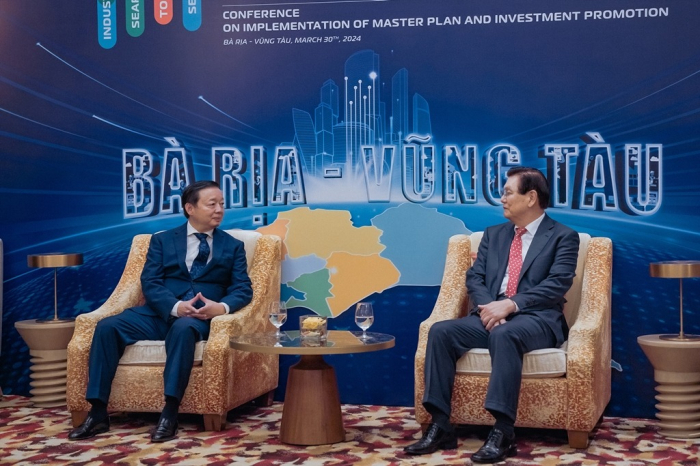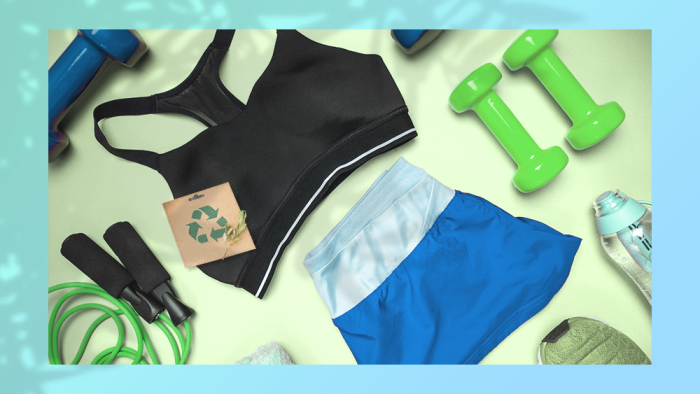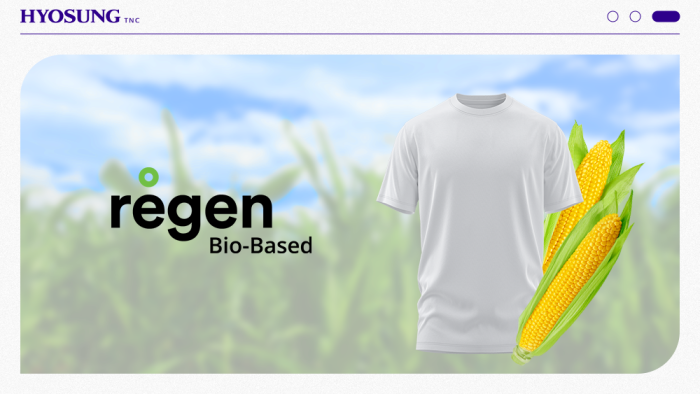Fiber & Textile
Hyosung TNC to invest $1 bn in new bio-fiber plants in Vietnam
Hyosung TNC by 2030 to generate 20% of its total spandex sales from sustainable products, which currently account for only 4%
By Apr 03, 2024 (Gmt+09:00)
3
Min read
Most Read
LG Chem to sell water filter business to Glenwood PE for $692 million


KT&G eyes overseas M&A after rejecting activist fund's offer


Kyobo Life poised to buy Japan’s SBI Group-owned savings bank


StockX in merger talks with Naver’s online reseller Kream


Meritz backs half of ex-manager’s $210 mn hedge fund



Hyosung TNC Corp., the world’s top spandex maker, plans to invest $1 billion in new bio-textile materials plants in Vietnam to accelerate its future growth engine in eco-friendly industries.
Hyosung TNC said on Tuesday it secured approval from the related provincial government last week to build a new bio-butanediol (BDO) factory with an annual capacity of 50,000 tons in Ba Ria-Vung Tau, on Vietnam’s Southeast coast. The South Korean company aims to manufacture and sell 50,000 tons of bio-BDO in the first half of 2026.
It also plans to establish more facilities to quadruple its bio-BDO capacity there to 200,000 tons a year.
BDO is a chemical used as a raw material for poly tetramethylene glycol (PTMG), an ingredient of spandex fiber. The chemical’s applications have been expanded into other products such as engineering plastics, biodegradable packaging, footwear soles and industrial compounds.
Bio-BDO is manufactured by fermenting sugars derived from sugar cane, replacing the use of existing fossil fuels such as coal by as much as 100%.
GO GREEN
“The bio business, which transforms conventional fossil raw materials into eco-friendly ones, will become a core pillar of Hyosung for the next 100 years,” Hyosung Group Chairman Cho Hyun-joon in a statement. “We will strengthen our global market presence based on sustainable biomaterials.”
Cho has been asking Hyosung TNC, the group’s textile unit, since the late 2000s to deal with the changes in the global textile industry, which faced tougher environmental regulations in Europe and the Americas, by introducing sustainable products.
Hyosung TNC aims by 2030 to generate 20% of its total spandex sales from sustainable products, which currently account only for 4%.
The sustainable textile and fashion market is valued at approximately $23 billion, with an average annual growth rate exceeding 12.5%, according to the company.

WORLD’S LARGEST BIO-SPANDEX COMPLEX
Hyosung TNC is slated to operate the world’s largest bio-spandex production complex, which integrates the entire manufacturing process from raw materials to fiber for the first time in the industry, in Vietnam with the investment.
The company plans to produce bio-BDO at the new factory and manufacture PTMG at a nearby facility in Dong Nai to mass-produce bio spandex with the material at its Dong Nai spandex factory.
This system enhances production efficiency through a stable raw material supply and allows for swift responses to market needs by speeding up production system operations, Hyosung TNC said.
It also cuts logistics expenses to improve cost competitiveness while reducing the need for transportation fuels to ease environmental concerns, according to the company.
Last October, Hyosung TNC joined hands with Geno, a US biotech company, which has been working on technology to derive sustainable materials from paint- or waste-based feedstock instead of fossil fuels for more than two decades, for bio-BOD production.
Bio-BDO based on Geno’s technology was estimated to reduce carbon dioxide emissions by up to 90% compared to those of existing products made of fossil fuels, Hyosung TNC said.
The company developed regen, South Korea’s first eco-friendly polyester yarn made of substances extracted from waste PET bottles, in the mid-2000s. It also launched regen spandex made with recycled spandex.

In 2022, it commercialized regen bio-based spandex, the world’s first spandex based on chemicals extracted from corn, to lead the global eco-friendly textiles market.
Write to Woo-Sub Kim at duter@hankyung.com
Jongwoo Cheon edited this article.
More to Read
-
 Fiber & TextileHyosung showcases world’s first bio spandex at Seoul textile exhibition
Fiber & TextileHyosung showcases world’s first bio spandex at Seoul textile exhibitionAug 24, 2022 (Gmt+09:00)
2 Min read -
 Fiber & TextileKorea textiles reborn as eco-friendly, high-tech
Fiber & TextileKorea textiles reborn as eco-friendly, high-techDec 08, 2021 (Gmt+09:00)
5 Min read -

-
 Beauty & CosmeticsHyosung TNC: Shifting from yarn maker to eco-fashion trendsetter
Beauty & CosmeticsHyosung TNC: Shifting from yarn maker to eco-fashion trendsetterFeb 09, 2021 (Gmt+09:00)
2 Min read -
 Hyosung’s recycled yarn from PET bottles lures fashion brands
Hyosung’s recycled yarn from PET bottles lures fashion brandsOct 13, 2020 (Gmt+09:00)
4 Min read
Comment 0
LOG IN


